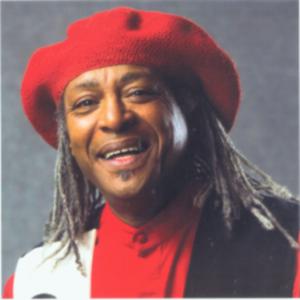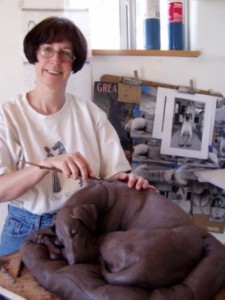Article by Marcia Darnell
Local arts – September 2004 – Colorado Central Magazine
THE HOUSE OF CREED is a hidden treasure. It’s hard to find but worth the trek — a cozy home with an impressive array of musical tools, including several varieties of drums, keyboards, speakers, synthesizers, and other electronic tune-makers. Floating amid this sea of aural delights are books, papers, and original art pieces, many his own. A poster of Malcolm X faces another promoting Earth Day.
Surfing easily among the flotsam of creativity and awareness is the figure San Luis Valley residents know as just “Creed,” on this day wearing a kimono with his graying dreadlocks and gentle smile.
The kimono is authentic, acquired on Creed’s recent trips to Japan, where he collaborated with artist Akemi Iwase on an album, “Tokyo Tribe.”
“I’m trying to blend these sounds,” he says, indicating the synthesizer, “Japanese, Latin, it’s kind of trippy.”
Creed came to music relatively late; he was nearly 30 when he started playing. “The impulse for it, the desire for it, came from my childhood,” he says, “the time I spent in Spanish Harlem and the Cuban influence of the mid-to-late Fifties, and the Puerto Rican influence. I watched it evolve.

“There was so much poverty, yet here was this music, here were these drums, there was joy, there was passion, there was hope. It made an impact on me, a very deep impact, but for whatever reason I didn’t have the courage, when I was living in New York, to do that.”
Creed was abandoned at birth, and was a ward of New York state, growing up in foster homes. Being without blood kin has been good, he says, because he thinks of all of the people in his life as brothers and sisters.
After serving as a medic in Vietnam, he left New York in 1974, and bought a drum. He worked in nursing for years, leaving when insurance companies started dictating how he could care for his patients. A stint in aerospace followed, but he found it stifling.
Real creativity awoke in him as a result of the men’s drumming movement in 1990.
“I went to a workshop in Boulder, and Michael Mead was the storyteller and drummer,” he says, “and I saw him standing up there, telling the story and playing the drum. I realized there’s a power there, there’s a calling.
“Realizing I could use the drum for healing was the start.”
Creed came to the San Luis Valley in early 1991, and played professionally for the first time the next year, as a backup for Jeff Valdez. “Drums in a biker bar,” is how he remembers that first gig.
Since then he has played with several groups, from Taos to Salida. His music family includes Don Richmond, Lucky LaRue, Burning Joan, Chipper Thompson, and Robin James. He made an unreleased album with Hired Hands titled “Live in Creede with Creed.”
Creed also does a considerable amount of free work, lending his talents to benefit performances for La Puente homeless shelter, Habitat for Humanity, and others.
“I’m giving back and trying to do something for my community in some small way,” he says. “That’s what music does for me. It’s important.”
His favorite venue is the Valley Farmer’s Market in Alamosa. He plays there several Saturdays every summer.
“That’s a blast,” he says. “There is such a strata — social, economic, all of it, in this valley, but at the farmer’s market, here is the melting pot. There’s a commonality — it’s good food, it’s grown here in the valley and it’s affordable. So I get to interact with all of the strata of the Valley and interact with different ethnic groups that I would not otherwise, because they might not be at the bar, they might not be at the concert, but on the street here I get to be right here with them, because there’s no stage between us. It’s just them and me and appreciation going back and forth.
“I am so high when I leave there I don’t plan anything after that for a couple of hours, I just come back here to my sanctuary and I just sit here and I let all of what I received there just saturate and digest itself into my body.
“It’s just like coming off stage, any musician will tell you that you don’t want to talk to other people, because you’re in the zone, and you are so connected to that which inspired what you played. So there’s a responsibility that comes with performing, an integrity, an honesty. The very things I want for my people.”
HE SAYS HE “just tries to be a brighter spot on the planet, to try just to put a smile on somebody’s face is a major accomplishment.
“As a nation, we’re all clinically depressed, and have been since Kennedy. And music is the only thing that I see right now that actually has an ability to bring about, just for a moment, a lighter mood. More than anything else, to let us know we’re not alone. We have each other.”
Creed describes himself as an ambassador.
“Music is not only an international medium, but universal,” he says. “Music brings a smile to the spirit’s face. It’s some other medium of communication other than the spoken word.”
Creed made a CD, “Tattered Sages,” in 2000. A drumming meditation CD, he describes it as “not suitable for driving.”
He played with Lucky LaRue on the Fourth of July in Alamosa, and has several gigs planned with Hired Hands and with Don Richmond at Bongo Billy’s in Salida.
“And I’ll be dropping in on other acts.”
Creed is also trying to learn to play the piano, as a percussion instrument, and having fun doing it.
“Before I transition out of this mortal coil, I’d like to be able to play the piano.”
Other goals include trying to live on trust, not fear, trying to be of service, and not to atone for being alive. He also wants to continue working on his pottery, and to produce another CD.
“With music, I get a chance to express how I feel about where I live and the people in my life. And about choosing to stay on the planet.”
To order “Tattered Sages,” send $10 to Creed de Avanzar, P.O. Box 1027, Alamosa, CO 81101.
Marcia Darnell lives and writes in Alamosa, and cherishes the feedback she gets from her audience of readers.


